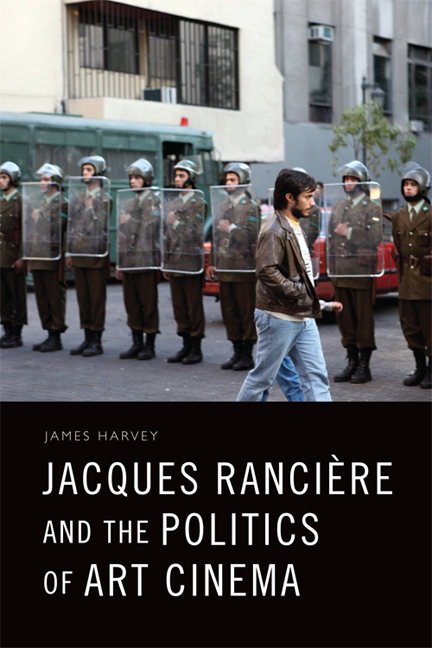1 - Panahi’s Disagreement
Published online by Cambridge University Press: 28 April 2021
Summary
Disagreement occurs wherever contention over what speaking means constitutes the very rationality of the speech situation … It is less concerned with arguing than with what can be argued, the presence or absence of a common object between X and Y. It concerns the tangible presentation of this common object, the very capacity of the interlocutors to present it.
(Rancière 1999: xi–xii)Disagreement carries a dual meaning, encompassing both the point being disputed and the terms used to define that dispute. Jafar Panahi's This is Not a Film (2011) provides a major example of disagreement in cinema from recent years. It concerns the depiction of a real life through the generically familiar, documentary tradition of political cinema. It takes as its subject matter a dispute with the Iranian government, channelling the relationship between dissent, conspiracy and activism that we find throughout the political cinema tradition (from Eisenstein through Gillo Pontecorvo, Costa-Gavras and Oliver Stone). In 2010, Panahi was banned from making and exhibiting films. His house imprisonment (as documented in This is Not a Film) was a temporary measure while awaiting trial for his crimes. However, the peculiar thing about This is Not a Film is Panahi's self-conscious determination to avoid matters of the social, making this this film stranger than it might first appear.
Closer insight into the events that occur in the film demonstrate Panahi's determination to avoid this topic. Rather than framing what follows in the ‘expository mode’ of documentary – the primary means of relaying information and persuasively making a case since at least the 1920s (Nichols 1991: 34) – This is Not a Film is more a deliberation on how one passes the time spent in incarceration. We mostly watch Panahi discussing – with collaborator and camera operator Mojtaba Mirtahmasb – the production of a film he was banned from making; performing mundane domestic chores; talking with friends and family; quietly, pensively waiting. This is an insight into a particular experience of censorship, over and above inquiry into the cultural circumstances of how censorship occurs. Yet, by documenting this avoidance on camera, he nonetheless has made a film. Extending debates framed in my introduction, I wish to argue that the political significance of Panahi's film derives not from the state context surrounding its production – it occurs instead through the aesthetic parameters negotiated by Panahi in the space of the film itself.
- Type
- Chapter
- Information
- Jacques Rancière and the Politics of Art Cinema , pp. 25 - 41Publisher: Edinburgh University PressPrint publication year: 2018



